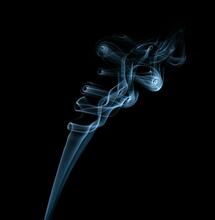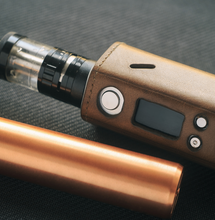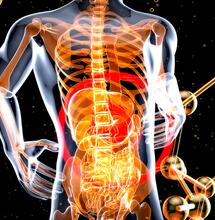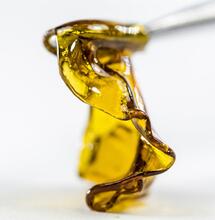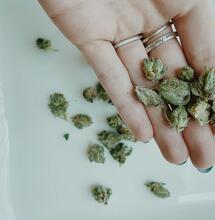How Cannabis Affects your Dreams

Many people use cannabis to help them sleep. While there is some evidence to suggest that cannabis may help with sleep, its impact on the quality of sleep is still largely unknown. THC is associated with decreased rapid eye movement (REM) and increased slow-wave sleep. CBD is associated with either increases or decreases in REM.
Many of the studies carried out, however, have been in animals, not humans, plus the ratio of THC to CBD can differ significantly from strain to strain. All the other sleep-impacting cannabinoids like CBN also need to be considered, which makes it hard to work out what's going on entirely.
REM sleep is critical to dreaming. Typically, if you wake up during this stage of sleep, you'll be able to remember your dreams. Reduced REM sleep means less of a chance of remembering your dreams.
When people using cannabis develop a tolerance to it and then stop using it, they can experience withdrawal symptoms where the body behaves in a way opposite to the typical use of the drug. That means, during the withdrawal period, people may take longer to fall asleep, have more REM sleep and have more memorable dreams that are recalled more intensely and vividly.
There may also be some memory-impairing effect of THC that suppresses dream recall. Something which returns with full effect once people stop using it. Whatever the results of the drug, as soon as you take it away, the opposite effect emerges. The REM is no longer repressed, and it bounces back to full effect.
Most symptoms of cannabis withdrawal, like trouble sleeping, appetite changes and anxiety, tend to go away in a few weeks. The effects of withdrawal on dreaming can last for up to 45 days.
In addition to affecting REM, there may also be some memory-impairing effect of THC that suppresses dream recall, which bounces back with a vengeance once people stop using it. For someone who's been a daily, habitual user for years and years, the sudden recall of dreams, especially vividly, is shocking and very notable.
Physicians typically only recommend sleep agents in the short term to avoid dependency. Long-term use of cannabis can also cause a dependence that impacts sleep.
Because of the challenges and restrictions on studying cannabis, it's still unclear whether there's a specific dosing that enriches sleep or deteriorates it, how smoking versus eating edibles changes rest or whether any effects can be mitigated by using combinations of THC and CBD. The matter is further complicated, however, by the fact that many CBD products still contain minor or trace amounts of THC and vice versa.
Furthermore, much of the analysis done on cannabis and dreaming was carried out in the 1970s, when the world of cannabis changed dramatically. THC is classed as lipophilic, which means that it binds easily to fat molecules and can remain in the body for up to 30 days as it slowly continues to release into the bloodstream. Many other factors can affect the amount of THC in your body at any point in time.
Although some cannabis brands might promote its effects on sleep, there is not enough evidence to say whether that's true. Its impact on dreaming does indicate that it's affecting at least some aspects of the process.
More on this topic from Soft Secrets:
